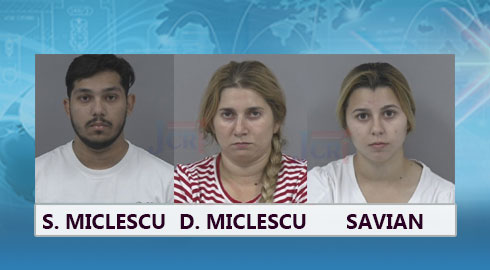Friday Food Preservation: Dos and Don’ts of Freezing Produce
 By Cassidy Hobbs Hall
By Cassidy Hobbs Hall
Area Agent, Family and Consumer Sciences
Johnston County Cooperative Extension
This is the 2nd in a series of 6 Food Preservation articles that will publish each Friday
We all know that Facebook tends to be a source of information that is not always based on facts or scientific evidence. This week, I saw a Facebook post that blew me away with someone’s ‘recommendation’ of how to prepare produce for freezing. The particular post suggested to run produce through a dishwasher cycle rather than blanching the vegetables. Don’t get any ideas because this is a horrible suggestion! Let me explain.
When preparing to freeze vegetables, it is absolutely necessary to blanch the vegetables. You may be questioning why you have to do this if you are freezing produce. As freezing does pause the food safety clock, but blanching has a major food quality purpose. Although vegetables are frozen, they contain enzyme actions that lead to loss of flavor, color, and texture. Blanching is a short process that cleanses the surface of dirt and microorganisms, brightens the color of your vegetables, and slows the loss of vitamins. You may choose to water blanch, a.k.a. the “boiling water method,” or steam blanch. It is most common to water blanch. After blanching, you should then shock the vegetables in cold or ice water to prevent further cooking and cool them down to go into the freezer. The cooling step should take about as long as blanching, and vegetables should be drained before freezing to prevent excess moisture, which can result in loss of quality. In the Facebook scenario, vegetables would experience uneven blanching resulting in some vegetables being over-blanched and making for horrible quality, while other portions were under-blanched. These vegetables would have also missed a key step: properly cooling.
You may now be questioning how long to blanch various vegetables. This is going to depend on the vegetable, and there are specific lengths of time per vegetable. This information can be found at https://nchfp.uga.edu/how/freeze/blanching.html. Be sure to follow these recommendations exactly. Under-blanching vegetables will actually speed up the enzymes which would be worse than not blanching at all. Over-blanching results in loss of flavor, color, and nutrients.
Once you’ve blanched, cooled, and drained your vegetables, package them in freezer containers. Freezer containers are moisture vapor resistant, durable and leakproof, sturdy and will not crack at freezer temperatures, protect foods from absorption, easy to seal, and easy to mark dates. Freezer bags or wide mouth freezer jars are most common. You’ll want to be sure your packages hold no more than a half-gallon. Using gallon freezer bags contain so much food they do not freeze quickly and can lead to loss of quality.
Freezing fruits can be done without blanching. Most fruits can be washed, frozen on a tray and packaged in freezer containers or they can be frozen and packed in syrup or sugar packs. Blueberries do best when not washed prior to freezing as it toughens their skins, but all produce should be washed prior to consumption.
Finally, be aware that not all produce freezes well. In fact, cabbage, celery, cucumber, lettuce, and radishes do not freeze well; however, there is an exception when used as a marinated produce such as freezer slaw or freezer pickles. Additionally, cooked potatoes become water-logged and crumbly. You should be aware that pepper, cloves, garlic, green peppers, celery seasonings, and some herbs tend to develop stronger and bitter flavors. For a complete list of foods that do not freeze well, please visit https://nchfp.uga.edu/how/freeze/dont_freeze_foods.html. Be sure to check out next Friday’s Food Preservation focused on freezing meats and dairy.
*N.C. Cooperative Extension is a partnership between N.C. State University, N.C. A.& T. University, and county government committed to serving our communities with evidence-based information in the areas of Agriculture, Food and Nutrition, and 4-H Youth Development.
—
Previous Article: Gearing Up to Preserve Local Foods
Next Friday we will discuss Freezing Meats & Dairy
Discover more from JoCo Report
Subscribe to get the latest posts sent to your email.











